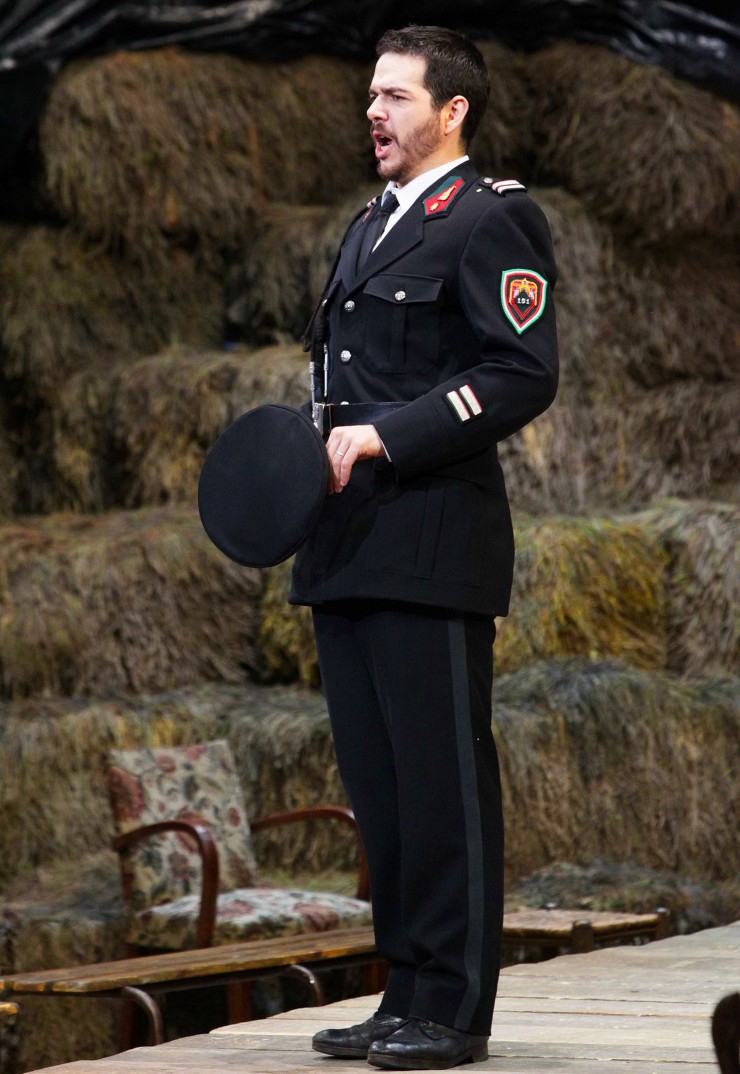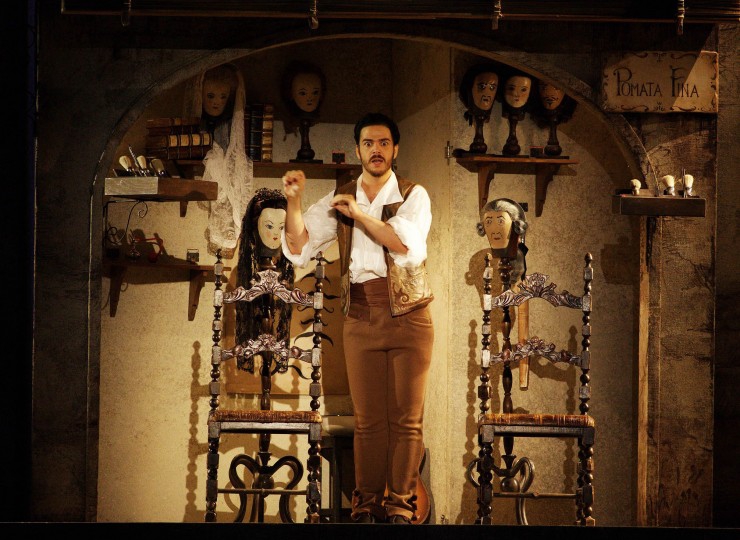
Talking with singers: Giorgio Caoduro
ReviewThis weekend, Italian baritone Giorgio Caoduro opens David Pountney’s production of Les vêpres siciliennes at Welsh National Opera, where he sings the role of Guy de Montfort. Performances start in Cardiff on 15 February, and tour through May to Llandudno, Bristol, Southampton, Milton Keynes, Plymouth, and Birmingham.
We spoke with Caoduro about falling in love with opera via cassette tape, and how his work draws him out of his natural introvert state.
Why do you sing professionally?
Since I was a teenager I was utterly in love with classical music, and in particular, opera (which made me kind of a nerd). Back then we didn’t have internet, so no YouTube or Spotify or anything like that, and having the chance to listen to classical music was much harder than it is now. I still remember my first two opera audio cassettes! It was Barber of Seville and Elixir of Love.
I fell in love right away for the voices, especially the low voices. I remember like it was yesterday: “I want to become a baritone or a bass and I want to sing in big opera houses!” Little did I know that in very few years I’d begin studying and making my professional debut. This year I will actually celebrate my 20th year of career.
What do you know now about the singing career that you wish you knew 10 years ago?
The thing that I would have definitely not expected 10 years ago is how hard the career gets in your late thirties. At some point you’re not the latest product on the market anymore, and unless you’ve become a star (and let’s face it, only a handful among thousands of singers become stars) agents and casting managers will start to look for something new, younger and cheaper singers.
Of course this is not always the case, there are a lot of artistic directors that appreciate and respect experience and craft, but I’ve come to the conclusion that if it’s hard to get to a high level of career, it’s much harder to remain at that level. I call myself very lucky that I’m still doing this job at an high international level and I have to thank the patience and the hard work that I’ve been putting into it.

As an Italian singer, what kind of unique connection do you have to Italian opera?
I always say that as an opera singer, being born in Italy makes me very lucky. More than half of the entire repertoire is in my language and this, trust me, makes my life so much easier! Jokes aside, I believe that only a native speaker can really savour every single word is saying, and catch all the nuances that the librettist “paints” in his storytelling.
That said, if we talk on an emotional level, I think that opera speaks a universal language that can touch everyone despite their nationality.
Out of the roles you have sung, with which do you find the closest connection?
I think that being an opera singer is extremely cathartic and lets you be something that you wouldn’t dare to dream to be in real life. In every day life I’m not a very extrovert person, I’m kind of shy, because somehow I never want to drive to much attention on me and I don’t want people to think that I’m trying too hard to be funny or to be likable. There are in fact a couple of roles which I performed countless times which let me be just the opposite on stage.
Dandini (from Rossini’s Cenerentola) and Figaro (from Rossini’s Barber of Seville) are actually the quintessential likable characters. They are very histrionic and the only ones in the respective operas that break the fourth wall to communicate directly with the audience. When I play those two characters I feel I can be as extrovert and funny as I want to without fearing to be judged.

If you didn’t sing for a living, what would you do instead?
No doubt about it, I would definitely teach. I think I have very good ear to detect the issues that a voice has, and I really like to use my stage experience to explore ways to solve them. I also had the luck to work with the greatest stars and conductors of our generation and I learnt so much from them, artistically and stylistically speaking, and I’m ready to pass on all this precious knowledge.


Comments